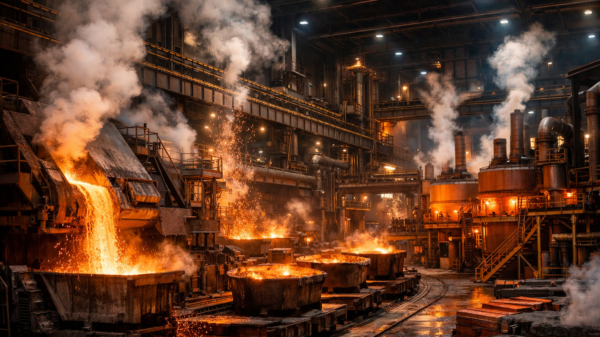Cloud computing company, CoreWeave Inc (NASDAQ: CRWV) expanded its use of Galaxy Digital Holdings’ (TSE: GLXY) Helios data center in West Texas to support its growing artificial intelligence and high-performance computing (HPC) needs.
The company announced in a Wednesday press release it was activating an option under their existing 15-year, 133 MW lease agreement.
Under the Phase II option, Galaxy will deliver 260 MW of additional IT capacity to support CoreWeave’s AI and HPC needs. Furthermore, this new capacity follows terms similar to the Phase I agreement. It also increases CoreWeave’s total contracted capacity at the Helios campus to about 393 MW. Galaxy will host this expanded load at its West Texas data center.
“New and advanced digital infrastructure is already rapidly reshaping industries and opening new opportunities,” said Mike Novogratz, the CEO of Galaxy.
“Diversifying our business across blockchain, crypto and AI allows us to maximize cash flow and deliver greater value to shareholders. CoreWeave has been a fantastic partner throughout this process.”
Galaxy acquired the Helios data center campus in Dickens County, Texas, from Argo Blockchain (LON: ARB) in December 2022. In addition, the current substation already has 800 MW of approved power capacity. Galaxy is also pursuing 1.7 gigawatts of additional capacity through various load studies. This expansion will support more AI and HPC infrastructure development.
“We’ve been incredibly impressed by the people and leadership in Dickens County and the great state of Texas,” said Novogratz.
“We’re honored to partner with them as we invest in the state’s future and help support its transformation into a digital infrastructure powerhouse.”
Read more: Hive Digital Technologies gets prepared for productivity bump in Paraguay
Read more: Bitcoin miners struggle in the wake of Trump tariff fallout
Texas has opened its arms to Bitcoin mining
Texas has become a haven for Bitcoin miners, thanks to its abundant energy, business-friendly laws, and proactive political support. The state’s openness to mining traces back to 2021, when China banned cryptocurrency mining. As a result, a wave of Chinese mining firms relocated to the U.S., with many choosing Texas. The state’s low-cost power and deregulated energy grid made it an ideal destination.
Bitdeer Technologies (NASDAQ: BTDR), founded by Chinese entrepreneur Jihan Wu, quickly established operations in Texas. The company also set up a massive mining facility in Rockdale, taking advantage of dormant industrial infrastructure. Similarly, Shenzhen-based Poolin moved its North American headquarters to Texas to escape China’s tightening regulations. These early moves set a precedent for other global miners.
In parallel, domestic firms expanded aggressively.
Riot Platforms (NASDAQ: RIOT), one of the largest Bitcoin mining companies in the U.S., built out a massive facility also in Rockdale. The company benefits from tax incentives and direct access to the Electric Reliability Council of Texas (ERCOT), which manages the state’s grid. Meanwhile, Marathon Digital Holdings (NASDAQ: MARA) followed suit, investing in sites across Texas to capitalize on the favourable regulatory climate and cheap, abundant power.
Additionally, Texas policymakers have embraced the industry. Governor Greg Abbott and local officials have repeatedly voiced support for Bitcoin mining as an economic driver. State leaders argue that miners help stabilize the grid by ramping down usage during peak demand. This grid-responsive behaviour has earned miners goodwill and political protection.
.














